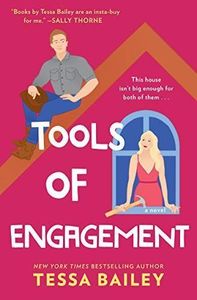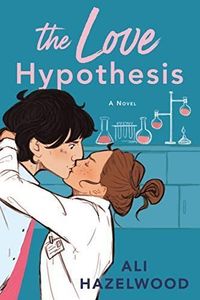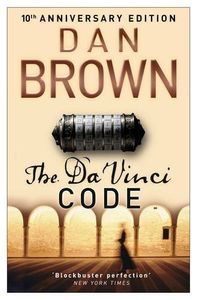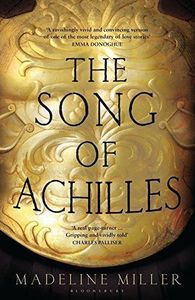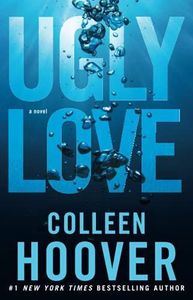Reviews
Altogether, I honestly don't know what to think of this book. I admired its ideals from the beginning but the turn of events did not seem to me achieved what I hoped it would. Forster is an excellent novelist all the same; some unsatisfaction does not make the ideals presented here less than agreeable and empathetic. I would like to say I half-heartedly love this book, nonetheless.
5 Stars Howard's End is a stalwart classic which has stood for over a century and will no doubt continue to stand up to future critics as well. It might seem outdated to some but at its root is still very relevant to people of today. The writing is beautiful and poetic, but underneath is also biting wit and astute social commentary. Also like many writers of years gone by, Forster had a wonderful vocabulary. Unlike some modern writers who cram in big words pretentiously, Forster's lexis flows eloquently and effortlessly. The story deals mainly with classism and gender bias but also with nationalism, the industrialization of England, and the capriciousness of human nature. All of these themes are strong throughout the story and add depth to the narrative. Forster explores them through the thoughts and actions of his diverse characters. And then there is the wonderful symbolism mainly seen in the house that is the epicenter of the story and the inspiration for the title: Howard's End. The story is primarily character driven brought alive by the flawed but fascinating characters. Some people may be put off by the sexism in this novel, but I did not view it as the author trying to enforce sexism but rather that he wrote some characters who were sexist. Actually, Forster's writing seemed supportive of women most of the time. The female characters ran the gambit between the fiercely independent and those meekly submissive to society's stereotypes. The male characters also displayed a range in their treatment of women the open minded to the oppressively condescending. It was also an interesting glimpse into the political and social climate of the time. Published in 1910 and written as a contemporary novel, it is easy to now spot the tensions that we now know were building up to World War I. Rather than being able to use hindsight and future knowledge to cheat the way historical fiction unavoidably does, Howard's End was an astute glimpse back in time and an unknowing portent. It was particularly interesting that the two main characters struggle with being half English and half German. I was very glad that my version of the book included footnotes; they provided a lot of useful background information particularly to cultural tidbits that are largely unknown in the twenty-first century. Each generation seems to think it has some sort of monopoly on feeling - as if they are the first ones to feel extremes of love and pain and life. One of the things I love about reading classics is that it is a portal to generations past. Though many, many things have changed since Howard's End was written, human nature has not. We still live through the same follies and fallacies. Sometimes it is good to be reminded of how history repeats itself largely due to our own blindness to the past. My one critique is that sometimes it was hard to follow the passage of time in between sections of the story. There were several places where the narrative jumped forward, but it was difficult whether day, weeks, or months had passed. But it is still a wonderful book overall. I will end with this quote: "England was alive, throbbing through all her estuaries, crying for joy through the mouths of all her gulls, and the north wind, with contrary motion, blew stronger against her rising seas. What did it mean? For what end are her fair complexities, her changes of soil, her sinuous coast? Does she belong to those who have moulded her and made her feared by other lands, or to those who have added nothing to her power, but have somehow seen her, seen the whole island at once, lying as a jewel in a silver sea, sailing as a ship of souls, with all the brave world's fleet accompanying her towards eternity?" RATING FACTORS: Ease of Reading: 4 Stars Writing Style: 5 Stars Characters: 5 Stars Plot Structure and Development: 4 Stars Level of Captivation: 5 Stars Originality: 5 Stars
Well, this took me long enough to finish! I swear, I always become the laziest, most sluggish reader the second classes start up. I read about one book every quarter, it's pathetic. But, tardiness aside, I've heard about this book for ages and I'm so glad I finally know what all the hullabaloo's about. It's a good book, but not my favorite Forster. I daresay, I think A Room With a View is holistically better. But I fully appreciate the sentiment, dramatics, and philosophy expressed in Howards End. It's a great novel, but I just wish it focused less on society, classes, and culture and more on revealing the intimate details of the relationships between the characters. Every time two characters got married or quarreled or made a connection with each other, the moment was there and then gone so quickly. Relationships were established in a heartbeat and I feel like Forster didn't take the time to develop or sell those intimate bonds between them. I guess my point, is that I wish the novel was at least 200 pages longer so I can know absolutely everything about anything that happened. In short, I really liked it, but it left me longing for more.
4.5
I didn't expect to get as involved in this book as I did! I started listening in the morning, and stayed with it through most of the day (with breaks), finishing about 1:00am. There's a lot going on here: class, rich vs. poor, the burgeoning women's rights/suffrage movement, male-female relationships, capitalism, and morality. These themes weave in and out of the story, moving like colored threads through a tapestry. Margaret and Helen are sisters. They meet the Wilcox family on a trip. Helen goes to spend some time at their house, the eponymous Howards End. She has a small adventure there that has repercussions later. The Wilcoxes end up moving to London and coincidentally take a flat across the way from where Helen and Margaret lives. It gets a little complicated after that, but there's a death, a marriage, a last wish denied, some well-meaning but misguided advocacy for the less well-off, an affair, an unplanned pregnancy, and finally, resolution. Good stuff. This kind of book works well for me on audio. The writing is really excellent. Read for Victorian/Edwardian book club.
This book is puzzling...I liked many passages, but for the most part it was highly philosophical and difficult for me personally to follow. I nearly gave it 2 stars, as I kept wondering when it would pick up, but then it would pick up and I would enjoy turning its many pages indefinitely. Also, I generally don't finish books that I would give 2 stars. I'm glad to have read it but I wouldn't read it again.
For me, the book started a little slow but quickly picked up the pace. The story revolves around Margaret, Helen and Tibby when their worlds collide with the Wilcoxs. It’s a long journey of friendship, love, deception, betrayals and even Murder. It’s is also about two strong women who stand up for themselves and throw off societal conventions in a time when the man handled the women.
Forster's novel discusses England's fate. The primary question at the heart of the book is "Who shall inherit Howards End?" which in itself symbolises England. The writing is truly beautiful and the passages describing the landscape, particularly London, were charming.
I started this book in May and I “finished” it in October because it’s so boring. I stopped at chapter 24 because I just couldn’t follow along. Sorry, E.M. Forster, but this book is boring.
One would be hard-pressed to find a more infuriating husband than Mr. Wilcox.
Highlights
It is thus, if there is any rule, that we ought to die- neither as victim nor as fanatic, but as the seafarer who can greet with an equal eye the deep that he is entering, and the shore that he must leave.

